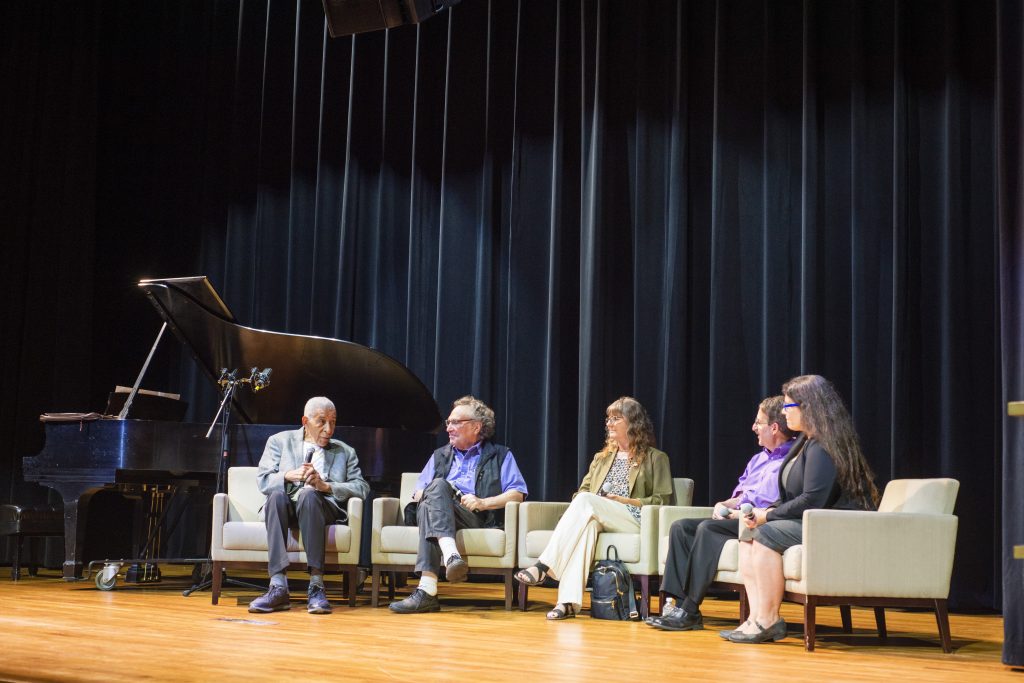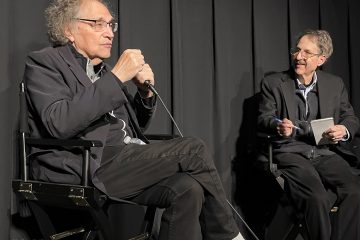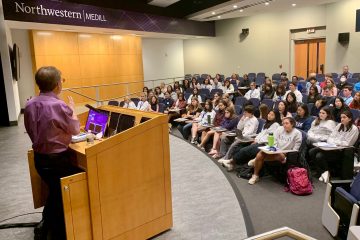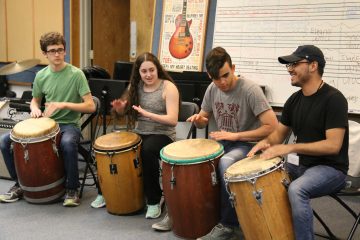Listening closely to ‘For the Left Hand’

Post-screening discussions about “For the Left Hand” have occurred across the country for the past year, but none zeroed in on music as acutely as the event Aug. 2 in the refurbished Claudia Cassidy Theater of the Chicago Cultural Center.
Presented by the Grant Park Music Festival and Chicago’s Department of Cultural Affairs and Special Events, the evening served as a curtain-raiser for that week’s Grant Park concerts featuring Ravel’s Piano Concerto for the Left Hand.
WFMT host Candice Agree, a classical music connoisseur, asked the filmmakers about the process of creating a documentary on music.
Gordon Quinn, who directed the film with Leslie Simmer, explained that he kept musical literacy in mind as he assembled the filmmaking team.
“One of the reasons I reached out to Leslie is [that] Leslie plays the piano,” Gordon said of Leslie, the film’s co-director and co-editor. “Diane [Quon], our producer, is a pianist. Matt Lauterbach, the other editor, was a pianist. Virtually everybody involved in the making of the film played classical music, except for me. I play nothing. I wanted to make sure that we had the ability to really make sure that this is a film that worked for a general audience but also for musicians, [and] for people who read music.”
So whenever music is being played in the film and we see a score onscreen, we’re looking at the precise musical passage being heard at that moment. In this way, musicians can follow along, note by note, while non-musicians can simply admire the score’s graphic complexity.
The composition featured most often in the film, of course, is Ravel’s Piano Concerto for the Left Hand, which Norman Malone – the film’s subject – has been studying for more than 60 years.
“Early on, we decided that we wanted the Ravel to be a character in the piece,” said Leslie. “So that’s why there were a number of times where you saw different parts of the piece being practiced over and over again – so that during the final performance you would recognize it, and you would feel it and sort of be with Norman a little bit more.”
Leslie went on to explain that Howard Reich, the film’s writer/co-producer, performed the Ravel Piano Concerto for the Left Hand in college.
“He has a really intimate relationship with the piece,” said Leslie. “And so he was like dangling this little treat over our heads for a very long time, saying: ‘Wait till I take you through the Ravel Concerto for the Left Hand, and I sort of explicate it for you.’
“So when we filmed that interview and him explicating the piece, I realized that was an opportunity for us to reach both ways into the audience of people who are musicians and are not musicians, in terms of trying to show a little more deeply some of the process in the composition itself. How do you make a piece that is that rich work for one hand? How does it look on the page? How does it actually act?”
Candice asked Norman how his years as a high school choral conductor and music educator enriched his piano playing.
“As a choral conductor, I had to learn what to play with only one hand, teaching choir,” said Norman. “So that was quite an education in itself.”
Gordon immediately responded: “I love what you just said … that you were also learning from your students. And I think that’s such a key part of what arts education is all about,” meaning the give-and-take between teachers and students.
“When we had those wonderful scenes with the students,” in which they thanked Norman for changing their lives through music, “it’s such an argument for the importance of the arts in education. It’s not an extra.”
Or, as Norman summarized, “There is no student that can’t learn music in some form, style or pattern. … Music education is necessary. It’s part of life. You listen to music. You play music. You hear music. You dance to music. It’s part of life.”
Added Leslie, “I personally believe that the human brain is wired to make and receive and enjoy and experience music. It’s part of us biologically. So having that opportunity in an education setting is absolutely necessary.”
Snapshots from the film screening event on Aug. 2 at the Claudia Cassidy Theater and the Grant Park Music Festival on Aug. 6 in Millennium Park.












